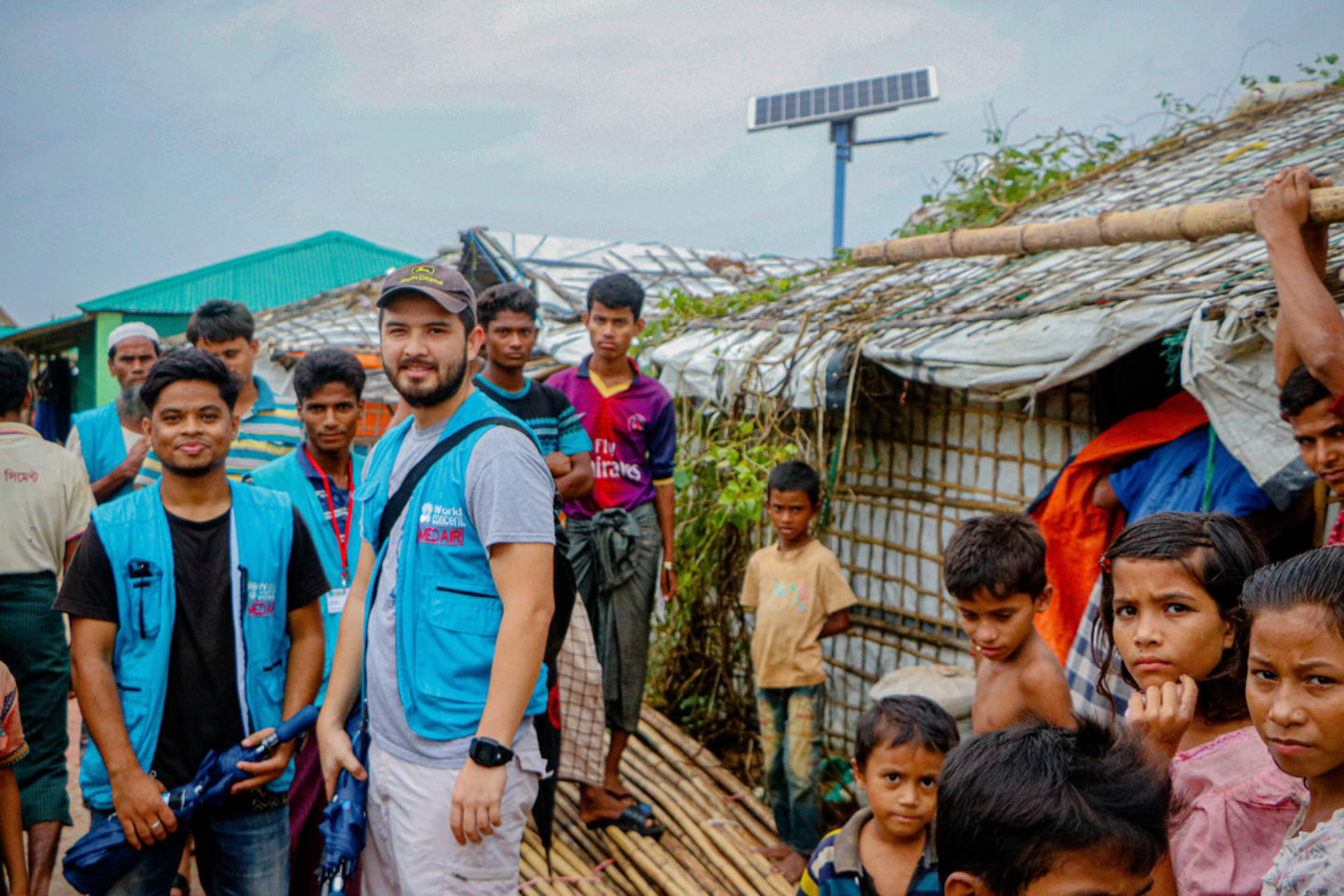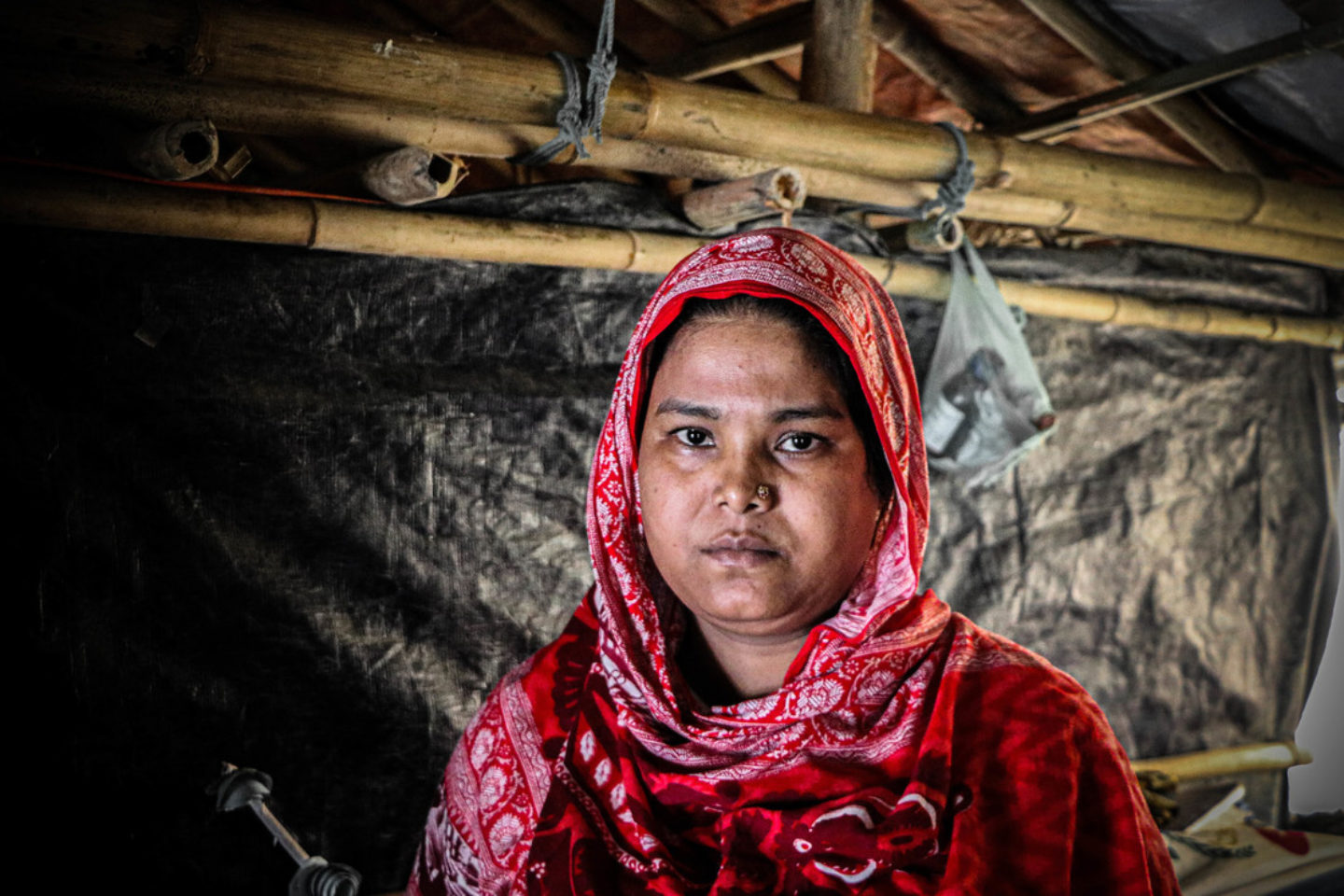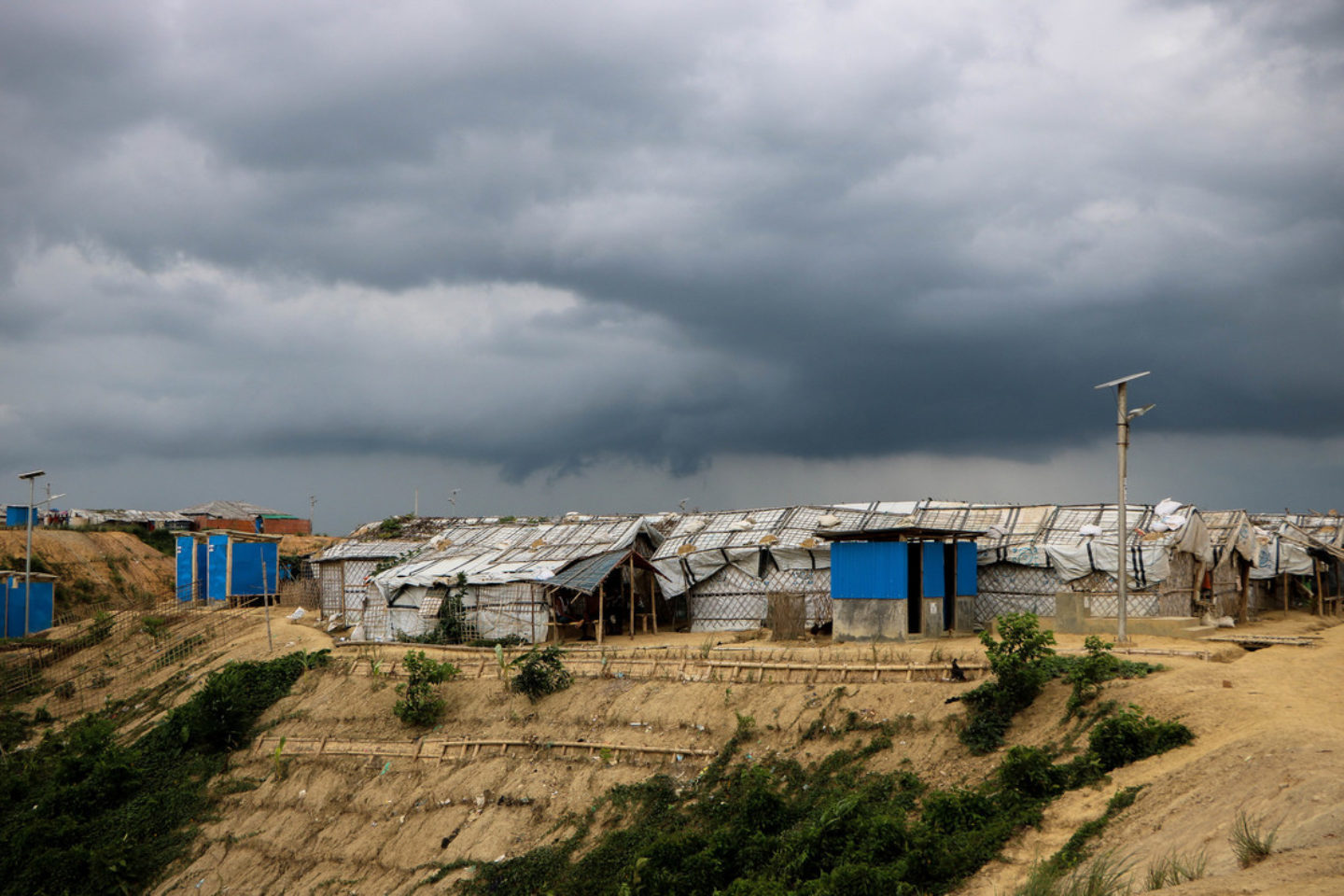Stories from Bangladesh
One Less Thing To Worry About
Rohingya Crisis: Living through the monsoon season
Living in a makeshift shelter among 600,000 other people in the world’s largest refugee camp is challenging enough. But when the monsoon season begins in Bangladesh, families who have already lost so much anxiously await, holding their breath, hoping against hope that heavy rains and wind will spare the little they have left.
As Medair’s shelter team sets out one early July morning, with relentless rain already plaguing the camp for days on end, there is serious cause for concern: “All the shelters in the camp are built on the slopes of sandy hills”, says Esteban Kang, Shelter Project Manager. “With this rain, it’s very difficult to keep them grounded.”
Ahead of the monsoon season, together with other aid organisations, Medair’s team worked to anticipate and mitigate the risks by distributing transitional shelter kits containing materials to help strengthen homes and provide additional protection for families. By July, due to such sustained rains, a decision is made to activate an emergency response.
 Esteban Kang (right), Shelter Project manager, and Munna Sazzadul (left), Shelter Project Assistant, visit families during a shelter emergency response in Kutupalong Camp.
Esteban Kang (right), Shelter Project manager, and Munna Sazzadul (left), Shelter Project Assistant, visit families during a shelter emergency response in Kutupalong Camp.
Responsible for 7,000 households in the camp, the shelter team – made up of Medair staff as well as Rohingya volunteers – are out every day, visiting families, and offering support for repairs, with special attention given to more vulnerable families.
Later in the day, with menacing clouds once again gathering overhead, the team checks in on Amina*. As they arrive, it quickly becomes apparent that she needs urgent help. “Her home is built at the bottom of a slope,” notes Esteban. “The rain has triggered a landslide and the back of her shelter is damaged.”
Looking around her shelter, with no back wall and mud covering the floor, she tells us, “My husband died in Myanmar. Now I live here alone with my daughter. With this rain, we can no longer stay in this shelter.”
The team quickly gets to work assessing the damage, carefully deciding what materials will be needed to make the repairs. Within 24 hours, materials will be provided and repairs underway. Soon, Amina and her daughter – who have temporarily found refuge at her sister’s shelter – will be able to move back in.
 Amina stands in her shelter in Kutupalong Camp, while a Medair team assesses damages caused by heavy rain.
Amina stands in her shelter in Kutupalong Camp, while a Medair team assesses damages caused by heavy rain.
After completing their assessments, the team continues their visits, walking up muddy stairs and through narrow pathways to reach another family. Just a few weeks prior, one of Medair’s Rohingya Community Volunteers alerted us to their situation: Nurul* and his five children are blind. Only Nurul’s wife, Yasmin*, can see. “They are suffering even more”, our volunteer told us.
As our team sits with the family, Yasmin shares her story: “We fled our home within minutes, we didn’t have time to take anything with us – just the clothes we were wearing. For several days, we hid in villages near the border. I had no idea where we were going, I just knew that we had to get as far away as fast as possible. It was very stressful, because I also had to guide my husband and my children as they can’t see. We were all very scared.”
After several days, they eventually arrived in Bangladesh, distressed and exhausted. The only hope they could cling to was that they would be able to go home as soon as possible. Yet, two years on, ongoing threats on their lives mean they have still not been able to do so.
“We have lost everything,” says Abul*, one of their neighbours in the camp who has stopped by to visit the family. “I had a house, cattle, crops. I have nothing left. And look at our children!” He points to a group of teenagers who have gathered at the front door. “Back home, they went to school. They loved to study. Today, they no longer have access to education.” He remains silent for a few seconds before adding, “Why did this happen to us?”
 Dark clouds gather over Kutupalong Refugee Camp. A reminder of how vulnerable the camp is during this monsoon season.
Dark clouds gather over Kutupalong Refugee Camp. A reminder of how vulnerable the camp is during this monsoon season.
Sitting with them, listening to their story, there is no easy answer to give. Amina, Nurul, Yasmin, and Abul are among one million Rohingya refugees currently living in Bangladesh, desperately hoping to return home. Their lives have been put on hold, and it is unclear when they will finally be able to resume them. As each day passes, it becomes increasingly difficult to remain hopeful.
Until that day finally comes, we must continue to stand by them and do whatever we can to help them survive this very challenging time. What we provide is not a long-term solution, and a safe shelter does not resolve their situation. But it does provide them with a little breathing room. Nurul, Yasmin, their children, and many others like them now have a completed shelter, keeping them protected from punishing and unforgiving weather.
And among all their concerns, it is at least one less thing to worry about.
*Names have been changed for security purposes
Medair is an international humanitarian NGO that provides emergency relief and recovery services to families made vulnerable by natural disasters, conflicts, and other crises. Medair is currently active in 10 countries. In Bangladesh, Medair works in partnership with World Concern.
This content was produced with resources gathered by Medair field and Global Support Office staff. The views expressed herein are those solely of Medair and should not be taken, in any way, to reflect the official opinion of any other organisation.
